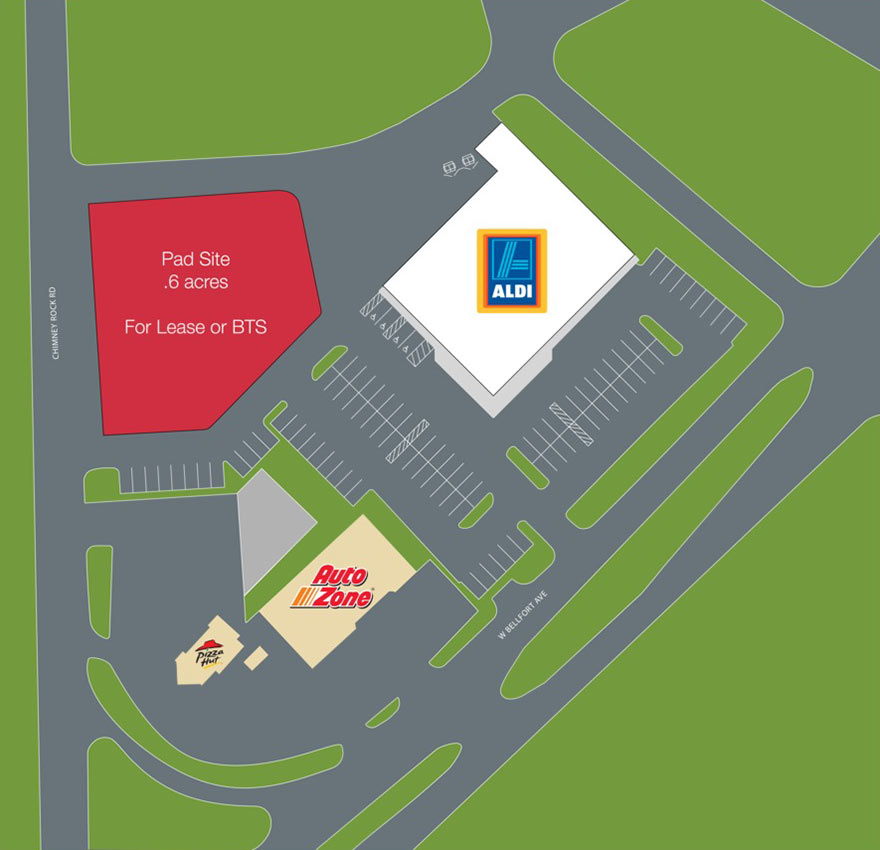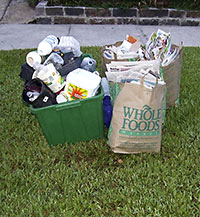AUTOMATED CURBSIDE RECYCLING: THIS IS ONLY A TEST Now the proud caretaker of a new 96-gallon bin-on-wheels that will apparently welcome even glass, Richard Connelly spills the beans about the city’s soon-to-be announced one-year pilot recycling project: “About 10,000 homes in Meyerland, Old Sixth Ward, Pine Loch in Clear Lake and other areas will take part in the program. They will be serviced by the same kind of trash trucks with grappling arms that take the regular bins, as opposed to having workers jump off trucks, pick up the small bins and sort out plastic from paper.” [Hair Balls]



What’s going to happen to all the recyclable material picked up?
Does the city have a third party taking it off there hands to actually recycle it?
Is there a facility near Houston that does this?
Many communities that jumped on the recycling band wagon back in the late 80s early 90s quickly realized what a money pit it can be if they don’t have someone taking the materials off their hands. Several communities have quit recycling or severely limited the pick up of the materials because no company will take it to the next step. The communities also couldn’t afford to ship it to facilities that would recycle the materials.
So yes, it’s good the city will help pick up the materials, but it is only worth it if the material actually gets recycled.
Are you suggesting that the city would be collecting and then putting it back into the general waste stream without telling us kjb? I never had you down as a conspiracy theorist.
In last year’s solid waste taskforce report the cost of the curbside recycling program was listed as $2.91M per annum net of revenues. That should be compared to $38M for general trash pickup and $28M for the heavy trash program. The biggest concern to the City has been how to reduce that $28M which is why they have switched to the alternate months construction and green waste pickup this year and why they are partnering with a third party to set up a reuse facility for construction and demolition material which is currently 38% of our total waste stream.
What I’m saying is that no plan has been published saying where the recyclable material is going?
Many municipalities that jumped on the bandwagon years ago found the recyclable materials just piled up because there wasn’t an entity available to actually recycle it. Shipping it off to the nearest entity that can recycle it became prohibitively expensive for some municipalities.
I’m not against the program. I just want to know where the material is going and if it is actually getting recycled.
The plant waste (trees, leaves) pickup has been a great program and the city is making some money. They actually sell it off a lot of it to private companies to make mulch. This is actually after the city uses what it needs. They also have been expanding there median rehab program to used the mulch to remove the grass. This saves money by not having to cut the grass and also allow a more natural low-maintenance median to develop.
I couldn’t find a list of the actual vendors. I was wrong about the costs too. The task force report lists $2.91M as being the costs of the current program and then $650k as being the revenues from the recycling. If there are revenues I am assuming the city is selling the material, presumably unsorted as I don’t believe they have a sorting facility. I understand your point though, particularly in the current market where many recyclers are stockpiling materials in the hope that prices will pick up again.
Crossing t’s and dotting i’s I pulled this from Carolyn Feibel’s piece in the Chronicle this morning about the single stream recycling pilot.
“The city’s recycling processor, AbitibiBowater, has a plant in southwest Houston that cannot take single-stream tonnage. But it has plans to retrofit the plant, perhaps in 2010, to manage the material. In the meantime, AbitibiBowater will ship the commingled material to its plant in Arlington.”
Also then found this piece on the City website:
http://www.houstontx.gov/solidwaste/press-20080702.html
Thanks for the info.
I wonder if it’s worse to truck the material up to Arlington or just stockpile it?
Wouldn’t it be better to start the recycling program when the facility is ready. It’s not like a year of not recycling will have much of an impact since we weren’t doing it for long time in the first place.
The money spent collecting and trucking the material up north could be spent or the plant itself and comprehensively plan the launch of city wide recycling.
You would think so. It would be interesting to know whether the City is paying for the increased haulage costs or whether AbitibiBowater is picking it up. From the looks of their press releases they are pretty aggressively trying to corner the market so they may have decided to take on the short term extra liability in the hopes of keeping a potentially big customer. I found this article on the Arlington facility, the sixth largest recycling facility in the US by all accounts, 30 tons per hour single stream sorting.
http://www.risiinfo.com/technologyarchives/millmaintenance/PPMagSeptember-The-quest-for-fiber.html